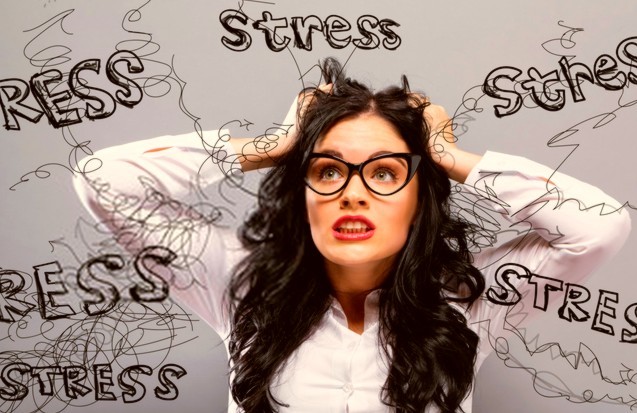
Contents
Negative effects of stress on your health
Being stressed from time to time for a specific reason, such as a job interview, for example, is not harmful to health. It becomes so if it is repeated and causes organic disorders. In this article, we will discuss 10 negative effects of stress on your health, which could be dangerous.
Read Also: Why I feel so tired all the time? Causes and Cures
Dull skin
Stress has biological repercussions that impact the skin. It is responsible for dull complexion and accelerates skin aging [1].
In case of prolonged stress, the essential nutrients in the body go primarily to the vital organs. The skin, not being vital, is immediately the expense of this momentary weakening. Stress has negative effects on your skin, so keep it away from yourself.
A deficient immune system
In the case of prolonged stress, the body makes a lot of cortisol, the stress hormone, which can cause a weakening of the immune system [2]. The body becomes more vulnerable to infectious agents, bacterial and mycotic, as well as different types of cancer.
Stressed people are more often sick than others and recover less quickly because they exhaust their bodies continuously.
Hair loss
Hair is at the forefront in case of intense or prolonged stress. Struggled directly and with stress, they can cause itching and irritation.
If the stress is acute, alopecia can appear, and the hair can be lost by whole handles.
Prolonged stress causes a more discreet but equally uncomfortable hair loss, which is due to a lack of capillary bulb irrigation.
Read Also: 11 Reasons for hair loss
Weight gain
Stress can make you fat. Because of the high levels of cortisol it causes, it can slow down the metabolism, causing more weight gain than normal. Prolonged stress can also change blood sugar levels, causing mood swings, fatigue, and possible occurrence of hyperglycemia [3].
Also, it pushes uncontrolled snacking with increased consumption of sugary foods and high fat.
Read Also: Why is obesity caused by stress?
Weight loss
Stress, particularly in the context of depression, can lead to significant weight loss due to two major factors: decreased or impaired appetite and accelerated metabolism [4].
A stressed individual will burn more calories than an individual who is more zen because the stress he feels makes him consume more energy and keeps his body always alert. Also, its eating behavior can be modified: lack of appetite due to a tight throat, nausea and/or other stress-related symptoms.
Read Also: Anxiety or panic in children: How can it be overcome?
The appearance of chronic diseases
Stress, when it becomes chronic, can contribute significantly to the pain of living, the weakening of the immune system and the appearance of various disorders and diseases [5].
Also, chronic patients experience more stress than most individuals because of sometimes heavy treatments, repeated health exams, the medical conditions in which they are followed, and so on.
It promotes addictions
The deleterious effects of stress are felt at the physical level but also on the psychological level. Too much stress can be difficult to manage and lead to the dangerous path of addiction. The soothing effect of certain substances is immediate but illusory [6].
Also, once the addiction installed, it is difficult to get rid of it and the health problems are not far …
A liver in excess
Stress causes a large production of cortisol, a stress hormone, by the adrenal gland [7].
This has consequences for the liver, which in reaction produces glucose that the body does not physiologically need. The liver tried so unnecessarily without dedicating itself to its primary functions of elimination and purification.
Digestive problems
Diarrhea or constipation, intestinal or abdominal pain, stress often impacts the digestive system in the first place. No wonder when the intestine contains millions of nerve cells, so it can receive messages from the brain.
The emotional state can, therefore, affect the functioning of the intestine and cause stomach upset and other discomforts.
Ulcers
Ulcer characterized by an alteration of the superficial layers of the skin or mucous membranes, which are particularly difficult to heal. It mainly affects the stomach and intestine but can also be cutaneous.
The stress does not give ulcers to speak but it gives a stomach ache, which therefore the worse.
The Bottom Line:
Stress has many negative effects on your health which could be dangerous in many forms. So, found some ways to relieve stress, such as do exercise, consider supplements, reduce your caffeine intake, laugh and spend time with your family and friends.




